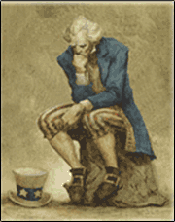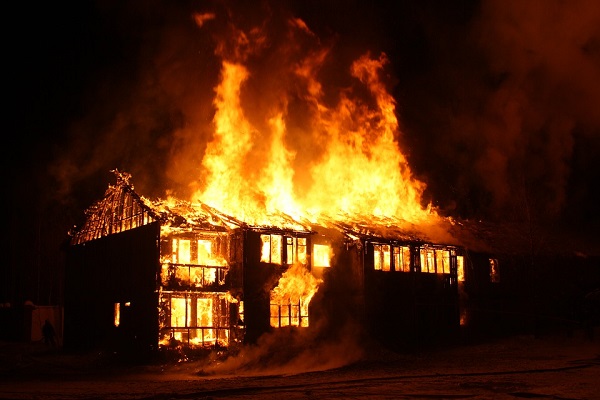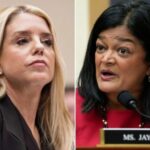
–>
October 9, 2022
Money Magazine recently released its list of the best places to live in the U.S. It is riddled with pompous virtue-signaling and plagued by diversity-induced myopia that skews rankings to fit a progressive, multicultural agenda. Indeed, the magazine admits that it “gave preference toward places with populations that were less than 80% white.” Many places probably are, but why propagate such bias instead of applying the criteria (education, jobs, housing, quality of life, etc.) objectively?
‘); googletag.cmd.push(function () { googletag.display(‘div-gpt-ad-1609268089992-0’); }); }
Instead, in the descriptive justifications for each ranking, Money Magazine touts diversity and multiculturalism. That emphasis results in high “best place” rankings for places with high crime rates, which are a big concern for most Americans. For example, a recent Morning Consult-Politico poll shows that 77% of voters believe that crime in the U.S. is a major problem. If one doesn’t feel safe, quality of life will be elusive.
Constrained by its contrived diversity data, Money Magazine proclaims crime-infested Atlanta, Georgia as the best place to live in the U.S. in 2022. The reason: its booming jobs market and “eye on equality.” Unfortunately, the politicians in Atlanta, and other liberal enclaves, often conflate equality with equity, going beyond equal opportunity to ensure equal outcomes.
Pollsters may include crime and safety as one metric to measure voter concerns, but the perverted ranking methods used by Money Magazine use “health and safety” as a criterion, perhaps in an effort to dilute the weighting of crime. And yet, the magazine speciously claims that “we look at the things that matter most to people.”
‘); googletag.cmd.push(function () { googletag.display(‘div-gpt-ad-1609270365559-0’); }); }
It makes more sense that health — including access to clinics and hospitals — be considered separately from safety, which is more related to crime stats. And according to those numbers, Atlanta is a very unsafe place. “With a crime rate of 45 per one thousand residents, Atlanta has one of the highest crime rates in America compared to all communities of all sizes.”
If you can stomach their racialist approach, scroll through their list and notice the number of times diversity is mentioned. Here are just a few of many examples from their ludicrous list:
Rogers Park (ranked number 5 best place) “is one of Chicago’s most diverse neighborhoods, with more than 60 different languages spoken.” Nevertheless, it’s riddled with crime. Acording to the FBI’s Uniform Crime Reports, Rogers Park’s overall crime rate is 22% higher than the national average, and residents have a 1 in 30 chance of being a victim of property, violent, or other crimes. It’s also noteworthy that major businesses are fleeing the Chicago area, including Tyson Foods, Caterpillar, Boeing, and Citadel.
Ann Arbor, Money Mag glows, is most welcoming, noting, “Last year, local representatives launched an Equitable Engagement Initiative to bring a diversity of voices into city planning. Necto, a popular Ann Arbor club, hosts the state’s longest-running LGBTQ+ Pride Night. It’s gone down every Friday since 1984.” Unfortunately, it’s also welcoming to criminals. After all, “the crime rate in Ann Arbor is considerably higher than the national average across all communities in America from the largest to the smallest[.]”
Kirkland, Washington: The ranking of Kirkland as the third best place to live is peculiar. Residents of that highfalutin, overpriced, and overrated town complain they can’t even sleep at night due to noise pollution. Imagine that: one cannot enjoy a restful night in the putative third best place to live because construction vibrations are shaking the ground. As a suburb of the Emerald City, it adds a new twist to the phrase Sleepless in Seattle. Still, at least the insomniac zombies are diverse.
Raleigh, North Carolina: Further demonstrating its bias, Money asserts that “Diversity bolsters Raleigh’s placement in our rankings. The city is notably more diverse than North Carolina as a whole and celebrates the fact.” Such celebrations include the “Out! Raleigh” pride parades. Meanwhile, during protests in June 2020, not peaceful but misbehaving protesters toppled statutes and dragged them through the streets, injuring several police officers in the process.
‘); googletag.cmd.push(function () { googletag.display(‘div-gpt-ad-1609268078422-0’); }); } if (publir_show_ads) { document.write(“
Too bad that crime stats don’t diminish Raleigh’s placement in the contorted rankings. They should, because “[b]ased on FBI crime data, Raleigh is not one of the safest communities in America. Relative to North Carolina, Raleigh has a crime rate that is higher than 65% of the state’s cities and towns of all sizes.”
At least Raleigh does have something going for it beyond the Money Magazine rankings — Raleigh-Durham ranks high on U-Hauls list of the top 25 growth cities of 2021. However, none of the other highly ranked best places, as ordained by Money, reaches the same heights on the U-Haul list. None! Per U-Haul migration trend reports, towns in Florida and Texas are where people prefer to move. In fact, the top five growth states in 2021 were Florida, Texas, Tennessee, South Carolina, and Arizona.
Which list do you trust more? I’ll go with U-Haul, because that’s where the rubber hits the road, as people pick up their belongings and flee degenerating liberal bastions. U-Haul’s migration data are derived from an “expansive network that blankets all 50 states and 10 Canadian provinces. The geographical coverage from more than 23,000 U-Haul truck- and trailer-sharing locations provides a comprehensive overview of where people are moving like no one else in the industry.”
Peevish progressives couch their discrimination mandates with diversity platitudes, but they become panic-stricken when a few illegal aliens are bussed to their doorstep. When hardworking folks, such as U-Haul one-way van-renters, go to the effort to uproot their lives, I doubt it’s to search for more diversity or linguistic challenges. Indeed, online tools for assessing the livability of places include various screening options, but not for diversity. There are no apps that screen for places with unassimilated foreigners who don’t respect that English is our de facto language.
Money Magazine has hijacked innocuous-sounding terms like “diversity” and “inclusivity” to justify an anti-white disposition. Its “best place” descriptions promote fringe cultures, but they are woke warriors who cancel mainstream culture. They celebrate multilingualism, gleefully noting that half the residents in Jersey City speak a language other than English at home and that 43% or residents were born in another country. Their ranking methodology ignores the confusion that engenders, especially when the police are trying to apprehend a migrant miscreant who doesn’t understand their orders.
Money Magazine concedes, “We did things differently in an effort to present a more inclusive set of cities that are both interesting and inviting.” Excepting Raleigh, they don’t appear inviting to the U-Haul truck–renters, or the businesses fleeing their jurisdictions. Their bias is not unconscious, but blatant. Their ill considered list of the best places is the worst.

Image: kolyaeg via Pixabay, Pixabay License.
<!– if(page_width_onload <= 479) { document.write("
“); googletag.cmd.push(function() { googletag.display(‘div-gpt-ad-1345489840937-4’); }); } –> If you experience technical problems, please write to [email protected]
FOLLOW US ON
<!–
–>
<!– _qoptions={ qacct:”p-9bKF-NgTuSFM6″ }; ![]() –> <!—-> <!– var addthis_share = { email_template: “new_template” } –>
–> <!—-> <!– var addthis_share = { email_template: “new_template” } –>





